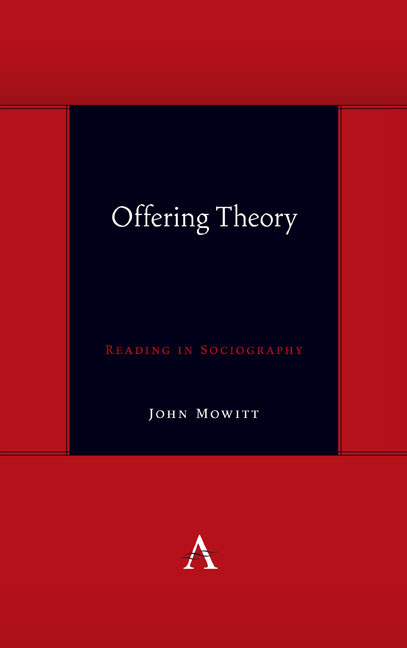Book contents
- Frontmatter
- Dedication
- Contents
- Acknowledgments
- The Pretext
- Introduction: Theory in Limbo
- 1 Queer Resistance: Foucault and the Unnamable
- 2 Stumbling on Analysis: Psychoanalysis and Everyday Life
- 3 Strangers in Analysis: Nationalism and the Talking Cure
- 4 “Jamming”
- 5 WWJD?
- 6 What Said Said
- 7 Apart from Theory
- 8 Conclusion: Theory Is Out There
- References
- Index
1 - Queer Resistance: Foucault and the Unnamable
Published online by Cambridge University Press: 14 August 2020
- Frontmatter
- Dedication
- Contents
- Acknowledgments
- The Pretext
- Introduction: Theory in Limbo
- 1 Queer Resistance: Foucault and the Unnamable
- 2 Stumbling on Analysis: Psychoanalysis and Everyday Life
- 3 Strangers in Analysis: Nationalism and the Talking Cure
- 4 “Jamming”
- 5 WWJD?
- 6 What Said Said
- 7 Apart from Theory
- 8 Conclusion: Theory Is Out There
- References
- Index
Summary
A crucial aspect of the thinking of context bears on the when—where—who of that which is to be contextualized. As I have suggested, the “who” of this series, as the index and avatar of identity, has come illegitimately to operate as a metonymy for the whole. It has done so at the expense of Theory, or so I contend. To develop this argument one might pose a rather direct “methodological” question, namely, where is it that Theory takes place, or, when does it happen? While this might appear to submit to a preemptive gesture of contextualization, consider that the bizarreness of the question, particularly as it avoids the standard attributive maneuver— who wrote it?— indicates that there is more here than meets the ear. Matters become even more challenging when we consider that Theory's uncanny status as the “chronic” implies that wherever and whenever it takes place, it isnât quite. Instead, however, of sitting stunned before this aporia, let me propose that it is precisely under such circumstances that the attractions of reading assert themselves. This never-quite- happening or always- having- happened quality of Theory calls out for attention. Not an interpretation. Not a production of the sense of Theory's situation, its identity under these circumstances, but a reading of the potential ensnarled in the chronic condition of Theory. As this clearly implies, reading is more than literacy, or if it is literacy, then literacy is more than the exercise of a narrowly defined linguistic competence. Put differently, and to use an expression whose evocativeness we have grown deaf to, what must reading be if one can “read a or the situation”? Is it a “decoding” as Stuart Hall once famously argued? If so, what is the code of the situation, or the encounter, that is deployed in the act of decoding? To be clear, the drift of such questions derives not from the now compulsory impatience with “language” that one hears everywhere and every time we speak of affect, body, technology, objects, matter and so on, but with the distinctive pressure put on the work of reading Theory when its character as reading is taken seriously.
- Type
- Chapter
- Information
- Offering TheoryReading in Sociography, pp. 15 - 36Publisher: Anthem PressPrint publication year: 2020



